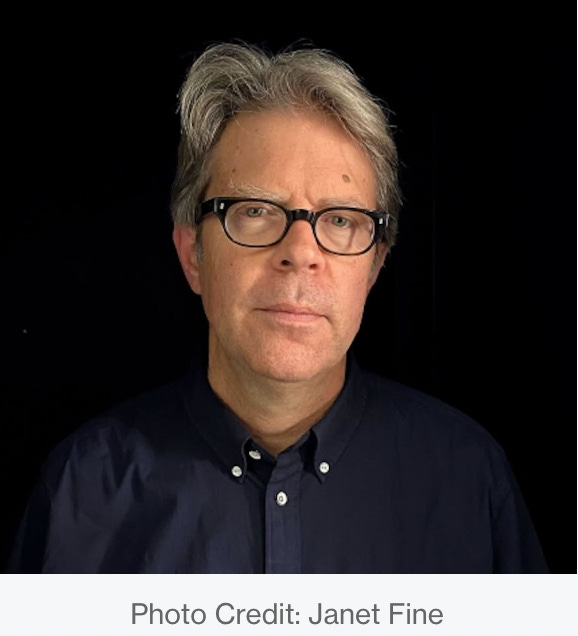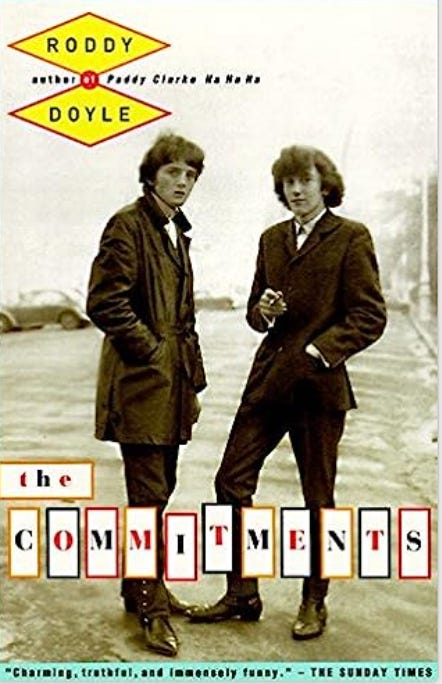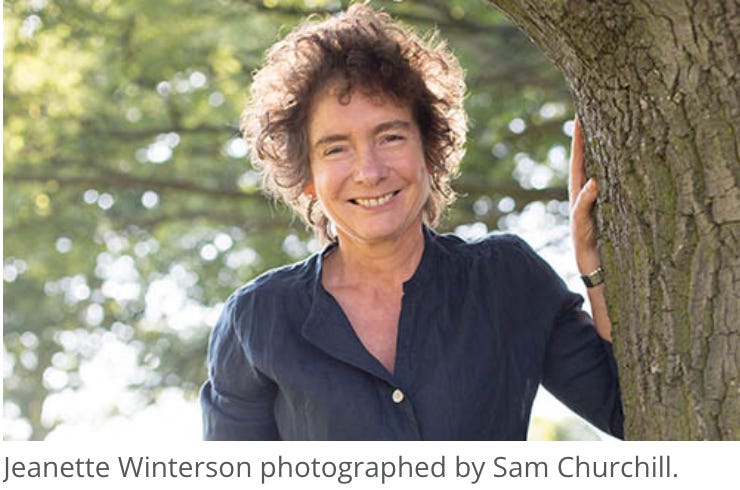A brief event-related preamble: This Wednesday, June 28, 6 PM, Colette Sartor (author of the Flannery O’Connor Award-winning collection Once Removed) and I will be in conversation at Chevalier’s Books in Los Angeles, 133 N. Larchmont Blvd. We’ll read a bit and talk about Direct Sunlight. Please join us if you’re in town. ☀️
*
I crossed paths with the Pasadena peacock patrol this past Sunday. They paused long enough, their mood unreadable, for this photo.
*
About twelve or so years ago, The Guardian asked a number of well-known writers to share advice, observations, and witticisms about the writing life.
Below I’ve excerpted some of my favorites.
Zadie Smith:
- Try to read your own work as a stranger would read it, or even better, as an enemy would.
- Don't romanticize your “vocation.” You can either write good sentences or you can't. There is no "writer's lifestyle." All that matters is what you leave on the page.
- Avoid your weaknesses. But do this without telling yourself that the things you can't do aren't worth doing. Don't mask self-doubt with contempt.
- Leave a decent space of time between writing something and editing it.
- Avoid cliques, gangs, groups. The presence of a crowd won't make your writing any better than it is.
- Protect the time and space in which you write. Keep everybody away from it, even the people who are most important to you.
- Tell the truth through whichever veil comes to hand – but tell it. Resign yourself to the lifelong sadness that comes from never being satisfied.
Geoff Dyer:
- Do it every day. Make a habit of putting your observations into words and gradually this will become instinct. This is the most important rule of all and, naturally, I don't follow it.
- Don't write in public places. In the early 1990s I went to live in Paris. The usual writerly reasons: back then, if you were caught writing in a pub in England, you could get your head kicked in, whereas in Paris, dans les cafés . . . Since then I've developed an aversion to writing in public. I now think it should be done only in private, like any other lavatorial activity.
- Don't be one of those writers who sentence themselves to a lifetime of sucking up to Nabokov.
- Keep a diary. The biggest regret of my writing life is that I have never kept a journal or a diary.
- Have regrets. They are fuel. On the page they flare into desire.
- Have more than one idea on the go at any one time. If it's a choice between writing a book and doing nothing I will always choose the latter. It's only if I have an idea for two books that I choose one rather than the other. I always have to feel that I'm bunking off from something.
Anne Enright:
- The first 12 years are the worst.
- Only bad writers think their work is really good.
- Description is hard. Remember that all description is an opinion about the world. Find a place to stand.
- Write whatever way you like. Fiction is made of words on a page; reality is made of something else. It doesn't matter how "real” your story is, or how “made up”: what matters is its necessity.
- Remember, if you sit at your desk for 15 or 20 years, every day, not counting weekends, it changes you. It just does. It may not improve your temper, but it fixes something else. It makes you more free.
Margaret Atwood:
- Do back exercises. Pain is distracting.
- Hold the reader's attention. (This is likely to work better if you can hold your own.) But you don't know who the reader is, so it's like shooting fish with a slingshot in the dark. What fascinates A will bore the pants off B.
- You most likely need a thesaurus, a rudimentary grammar book, and a grip on reality. This latter means: there's no free lunch. Writing is work. It's also gambling. You don't get a pension plan. Other people can help you a bit, but essentially you're on your own. Nobody is making you do this: you chose it, so don't whine.
Jonathan Franzen:
- The reader is a friend, not an adversary, not a spectator.
- Fiction that isn't an author's personal adventure into the frightening or the unknown isn't worth writing for anything but money.
- Write in the third person unless a really distinctive first-person voice offers itself irresistibly.
- When information becomes free and universally accessible, voluminous research for a novel is devalued along with it.
- Never use the word “then” as a conjunction – we have “and” for this purpose. Substituting “then” is the lazy or tone-deaf writer's non-solution to the problem of too many “ands” on the page.
- Interesting verbs are seldom very interesting.
- You have to love before you can be relentless.
Sarah Waters:
- Writing fiction is not “self-expression” or “therapy.” Novels are for readers, and writing them means the crafty, patient, selfless construction of effects. I think of my novels as being something like fairground rides: my job is to strap the reader into their car at the start of chapter one, then trundle and whizz them through scenes and surprises, on a carefully planned route, and at a finely engineered pace.
- Respect your characters, even the minor ones. In art, as in life, everyone is the hero of their own particular story; it is worth thinking about what your minor characters' stories are, even though they may intersect only slightly with your protagonist's.
- Read like mad. But try to do it analytically – which can be hard, because the better and more compelling a novel is, the less conscious you will be of its devices. It's worth trying to figure those devices out, however: they might come in useful in your own work. I find watching films also instructive. Nearly every modern Hollywood blockbuster is hopelessly long and baggy. Trying to visualize the much better films they would have been with a few radical cuts is a great exercise in the art of story-telling. At the same time . . .
- Don't overcrowd the narrative. Characters should be individualized, but functional – like figures in a painting.
Neil Gaiman:
- The main rule of writing is that if you do it with enough assurance and confidence, you're allowed to do whatever you like. (That may be a rule for life as well as for writing. But it's definitely true for writing.) So write your story as it needs to be written. Write it honestly, and tell it as best you can. I'm not sure that there are any other rules. Not ones that matter.
Roddy Doyle:
- Do not place a photograph of your favorite author on your desk, especially if the author is one of the famous ones who committed suicide.
-Do, occasionally, give in to temptation. Wash the kitchen floor, hang out the washing. It's research.
- Do change your mind. Good ideas are often murdered by better ones. I was working on a novel about a band called the Partitions. Then I decided to call them the Commitments.
Rose Tremain:
- Respect the way characters may change once they've got 50 pages of life in them. Revisit your plan at this stage and see whether certain things have to be altered to take account of these changes.
- If you're writing historical fiction, don't have well-known real characters as your main protagonists. This will only create biographical unease in the readers and send them back to the history books. If you must write about real people, then do something post-modern and playful with them.
- Learn from cinema. Be economic with descriptions. Sort out the telling detail from the lifeless one. Write dialogue that people would actually speak.
David Hare:
- Style is the art of getting yourself out of the way, not putting yourself in it.
- If nobody will put your play on, put it on yourself.
- Never take advice from anyone with no investment in the outcome.
- The two most depressing words in the English language are “literary fiction.”
Jeanette Winterson:
- Take no notice of anyone you don't respect.
- Take no notice of anyone with a gender agenda. A lot of men still think that women lack imagination of the fiery kind.
- Trust your creativity.
- Be ambitious for the work and not for the reward.
*
Three recommendations:
Michael Deagler’s short story, “New Poets,” Harper’s (Michael’s debut collection, Early Sobrieties, will be published next year by Astra House Books).
Zoe Zolbrod’s memoir The Telling
Frank Edwards’ novel Reap (a medical thriller)








Great stuff, Christine and thanks for the shout out.
" Don't be one of those writers who sentence themselves to a lifetime of sucking up to Nabokov."
I couldn't have said it any better. "Lolita" creeped me out before I finished the first page. I only finished the book because it was assigned during grad school. One kid in class--a really big guy who looked like he could snap you in half with his little finger--broke down during one passage: we discovered quite by accident that he was a victim of sexual abuse as a child. Class was dismissed that night. After that, I went back to my original assessment: "Lolita?" An ode to pedophilia, disguised as literature.